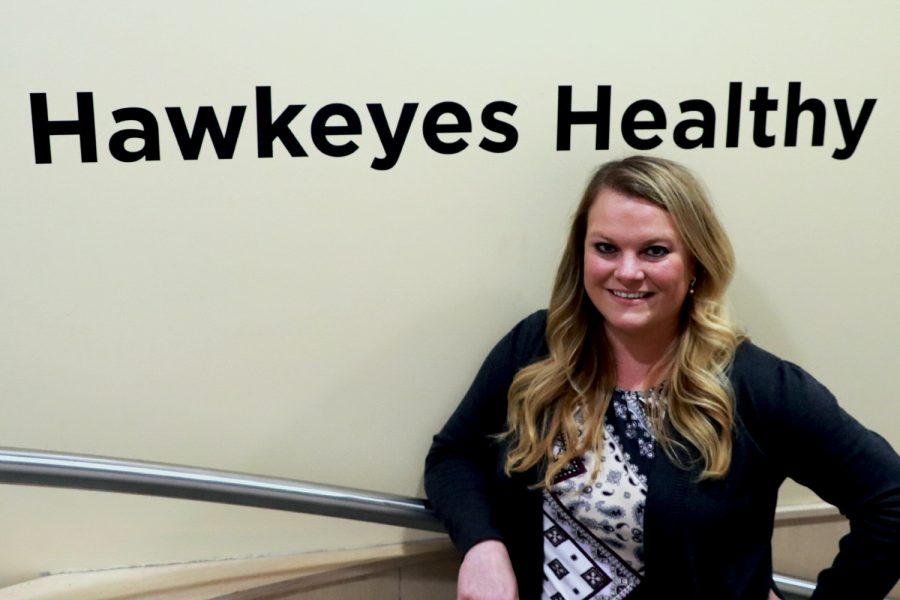Iowa City mental health, substance use center offers a safe haven for the community
The GuideLink Center in Iowa City has been open for barely a year and has been designated as one of the state’s six access centers for people struggling with mental health and substance use.
Abbey Ferenzi, a GuideLink member, poses for a portrait in the West Lawn Student Health building on Friday, March 4, 2022.
March 7, 2022
In its first year, the GuideLink Center has served over 1,200 Iowa City residents struggling with mental health and substance use.
GuideLink Center Executive Director Abbey Ferenzi said the idea for the center originated about 10 years ago, when multiple stakeholders in Iowa City realized the community needed help.
“They said, ‘What can we do differently? There’s a gap in our system for individuals who need urgent care for mental health or substance abuse services,’” Ferenzi said.
The center serves about 100 people a week, she said.
Ferenzi said many people who struggle with mental health or substance abuse and urgently need care are taken to the emergency room or jail.
This process is ineffective, she said, because the patient can’t wait four or six weeks to see a doctor, especially when they are at high risk.
“We want this to be a warm and inviting place where people can come and seek help,” Ferenzi said. “We practice DEI and continue to practice DEI to make sure this is a safe space for everyone.”
The center provides treatment from double boarded health care professionals and several different services:
- Counseling
- Medically monitored detoxing
- Triage
- Crisis stabilization
“We are breaking down barriers between the mental health and substance use world. You don’t really see that at all,” Ferenzi said.
GuideLink medical director Monika Jindal said the center’s core values are what attracts people to the center.
“I think it’s our warm, welcoming environment, being an alternative to an ER trip, providing a less restricting environment, and valuing the individual as a person,” she said.
Mae Hingtgen, CEO of the Eastern Central Region of Mental Health/Disability Services in Iowa, said the Eastern Central Region of Mental Health/Disability Services advocate to spread those core values to all the branches they oversee.
“We have a set of core values, and we have a strategic plan with our mission and vision, but we also have one big goal around access,” she said.
Hingtgen is pushing to change the language in this area of study. Brain health is the phrase that is being integrated into the system because it takes away the stigma with phrases like “crazy” or “mentally ill.”
“Just as your heart or your liver can get sick, so can your brain,” she said. “It’s a sickness of an organ just like any other organ.”
Ferenzi said most patients who visit the GuideLink center have reported they’ve found the help they need and are happy with their experience.
“We do take client surveys and we have a 97 percent client satisfaction rate,” she said.
Ferenzi said the center also plans to increase staffing, as it expects to see a 50 percent increase in new patients.
There are now six access centers across the state for people that are in crisis or feel that they need a helping hand living the life they want to live.
“That’s one thing the access center does for us, it’s immediate help,” said Hingtgen.



